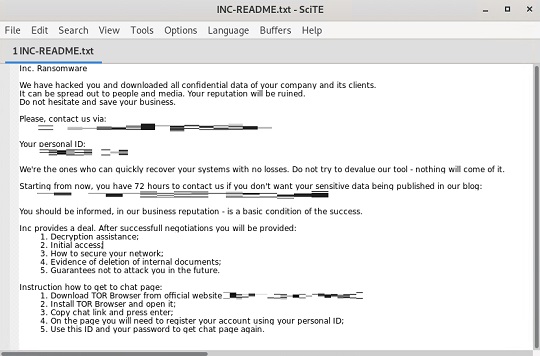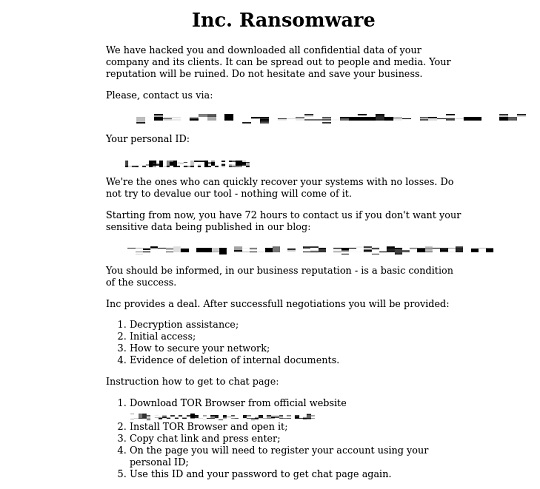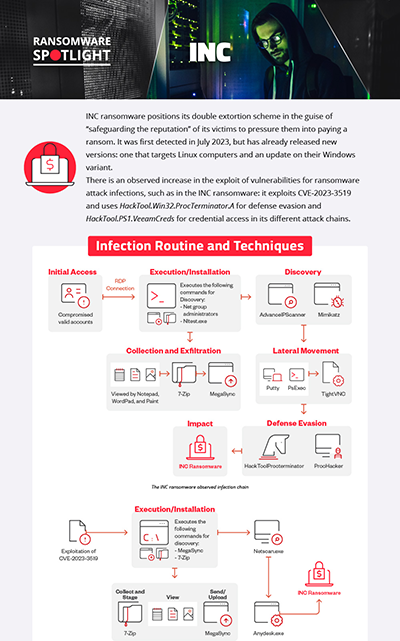Ransom.Linux.RANINC.YXDLOT
UDS:Trojan-Ransom.Linux.Babuk.inc (KASPERSKY)
Linux


Threat Type: Ransomware
Destructiveness: No
Encrypted:
In the wild: Yes
OVERVIEW
This Ransomware arrives on a system as a file dropped by other malware or as a file downloaded unknowingly by users when visiting malicious sites.
It encrypts files with specific file extensions. It drops files as ransom note.
TECHNICAL DETAILS
Arrival Details
This Ransomware arrives on a system as a file dropped by other malware or as a file downloaded unknowingly by users when visiting malicious sites.
Installation
This Ransomware drops and executes the following files:
- If the '-esxi' parameter is used:
- {Malware File Path}/kill
Other Details
This Ransomware accepts the following parameters:
- --debug → Print debugging logs of the malware to the terminal.
- --daemon → Creates a duplicate child process of itself.
- --file {File Path} → Encrypts the specified file.
- --dir {Direcrtory Path} → Encrypts the specified directory.
- --motd → Modifies the content of the "Message of the Day" system file '/etc/motd' into the ransom note text.
- --esxi → Kill ESXi servers. Disables autostart for the host, powers off all virtual machines, and remove all snapshots from each virtual machine.
- --skip {Virtual Machine name} → Excludes the specified virtual machine from the termination process.
Ransomware Routine
This Ransomware encrypts files with the following extensions:
- .vmdk
- .vmem
- .vmx
- .vswp
- .vmsn
It avoids encrypting files with the following strings in their file name:
- INC
It appends the following extension to the file name of the encrypted files:
- {original filename}.{original extension}.INC
It drops the following file(s) as ransom note:
- {Encypted Directory}\INC-README.txt

- {Encypted Directory}\INC-README.html

SOLUTION
Step 1
Search and delete this file
- {Encypted Directory}\INC-README.txt
- {Encypted Directory}\INC-README.html
- {Malware File Path}/kill
Step 2
Scan your computer with your Trend Micro product to delete files detected as Ransom.Linux.RANINC.YXDLOT. If the detected files have already been cleaned, deleted, or quarantined by your Trend Micro product, no further step is required. You may opt to simply delete the quarantined files. Please check the following Trend Micro Support pages for more information:
Step 3
Restore encrypted files from backup.
Did this description help? Tell us how we did.



